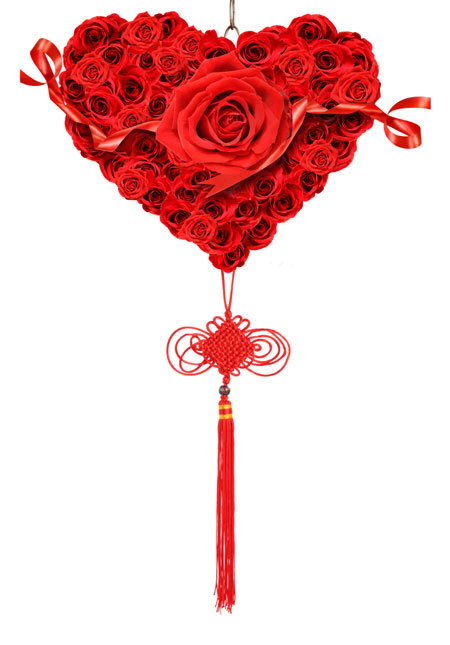Much ado over lanterns and love
By Yuan Quan and Zhou Runjian ( China Daily ) Updated: 2014-02-13 10:10:34
|
Illustration by Tian Chi / China Daily |
This year, Lantern Festival, which marks the end of Spring Festival celebrations, falls on the same date as the Western celebration Valentine's Day. But the two festivals may have more in common than first thought. Yuan Quan and Zhou Runjian from China Features report.
Valentine's Day takes on a new meaning for many Chinese this year as it falls on what happens to be the Lantern Festival, which is celebrated on the 15th day of the first month of the Chinese lunar calendar.
Heated online discussions are taking place about how to split the celebrations between lovers and families, as the Lantern Festival, which marks the last day of the Lunar New Year celebration, is conventionally regarded as a day to spend time with familily members.
But some people have dug into the festival's origin and found that it was traditionally a romantic day, when young couples in ancient times made secret dates at lantern fairs, giving the overlap of the Chinese and Western festivals a new meaning.
"Many legendary love stories start with an encounter on the Lantern Festival, so it can be viewed as a Chinese version of Valentine's Day," says Wang Laihua, a Chinese traditional culture researcher with the Tianjin Academy of Social Sciences.
In ancient China, women grew up at home and rarely had the chance to go outside to meet people. But the Lantern Festival was an exception. On that particular day, young women were allowed to go outdoors at night to see the lantern displays, offering them an opportunity to meet young men.
There have been many ancient Chinese poems depicting romance on the night of the Lantern Festival. These stories have been passed down for generations and are still appreciated by people today.
However, the traditional festival is not all about romance. Lion and dragon dances, acrobatic performances and fireworks are all features of this special day. Children try to solve riddles that decorate the colorful lanterns and are often rewarded with gifts if they get the right answers.
Celebrations vary from place to place, but eating yuanxiao, or sweetened rice dumplings, is common across the country, and the tradition has been passed down through generations.
|
|
|
|
|
|
|
|
























 Raymond Zhou:
Raymond Zhou: Pauline D Loh:
Pauline D Loh: Hot Pot
Hot Pot Eco China
Eco China China Dream
China Dream China Face
China Face





